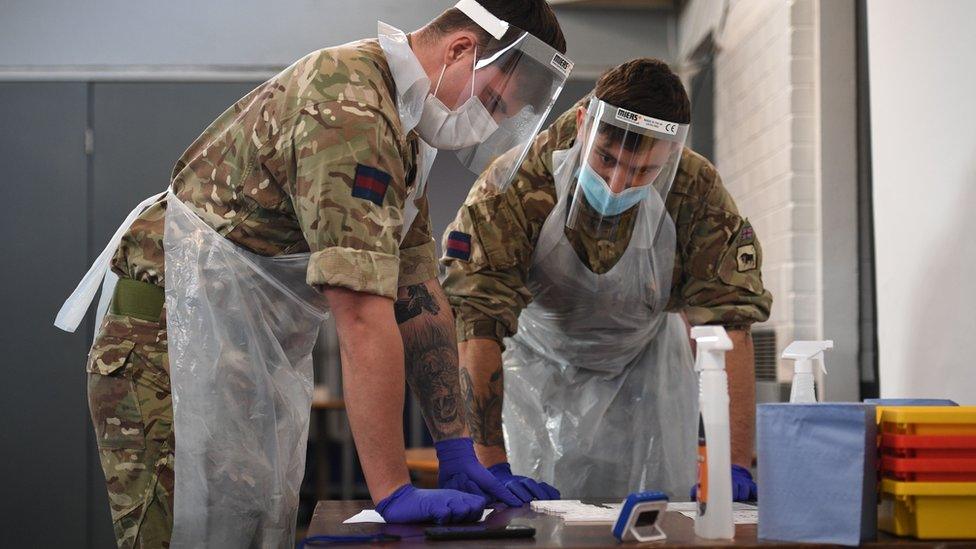Covid in Scotland: NHS major incident warning as military help called in
- Published
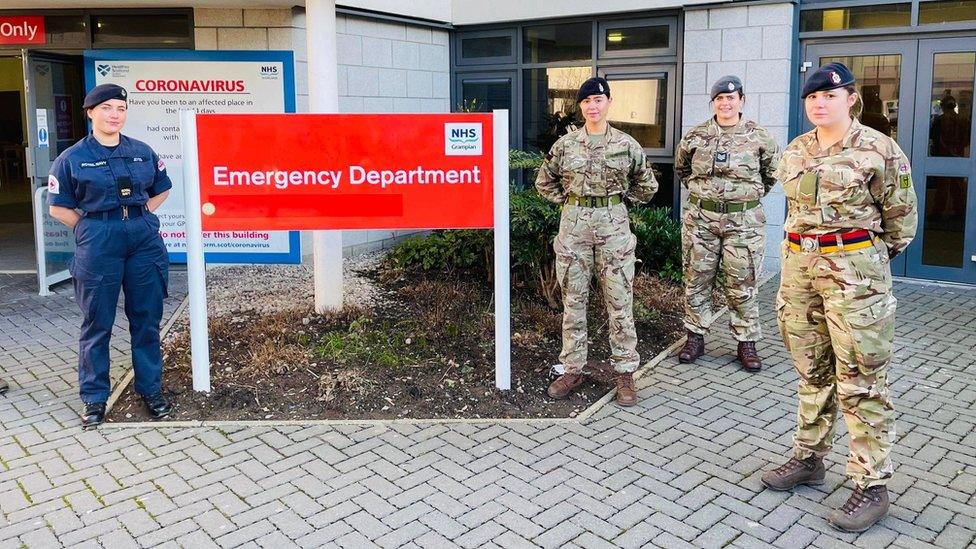
Military personnel began induction training on Friday
NHS Grampian could declare a major incident next week amid rising Covid cases, as extra military staff begin arriving to help three health boards.
Grampian warned trigger points could be met as early as the end of next week amid an "exponential growth" in cases.
Military personnel began arriving to support staff on Friday.
Grampian will have 38 service men and women for four weeks, 32 will work in Lanarkshire for the same period, while Ayrshire & Arran gets 20 for six weeks.
The Military Assistance for Civilian Authorities (Maca) support was approved by the Scottish government in December.
In a briefing to staff, external about Omicron and the next phase of the pandemic, NHS Grampian said it had seen exponential growth of case numbers in the region, and Scotland in general, in the past fortnight.
"Based on our modelling data, we anticipate a continued and significant growth in the levels of the disease placing even more significant pressure on care homes, primary care teams, community teams and hospitals", it said.
"Our planned response will include a declaration of a major incident when a number of key trigger points are reached. Looking at our local data, these triggers could be met as early as the end of next week."
The board said a Major Incident Plan covering a period of around 30 days would be available from next week.
"It will include how staff may be affected with regards to deployment, non-critical clinical and non-clinical activity and changes in service capacity," the statement added.
Allow X content?
This article contains content provided by X. We ask for your permission before anything is loaded, as they may be using cookies and other technologies. You may want to read X’s cookie policy, external and privacy policy, external before accepting. To view this content choose ‘accept and continue’.

Hundreds of members of the armed forces have already been supporting the vaccine programme across Scotland, as well as driving ambulances.
The latest military personnel were starting induction training on Friday morning.
In Grampian, 23 arrived and the remaining 15 will follow next week.
They are expected to be deployed as healthcare support workers and nurses in the emergency and intensive care departments for at least four weeks.
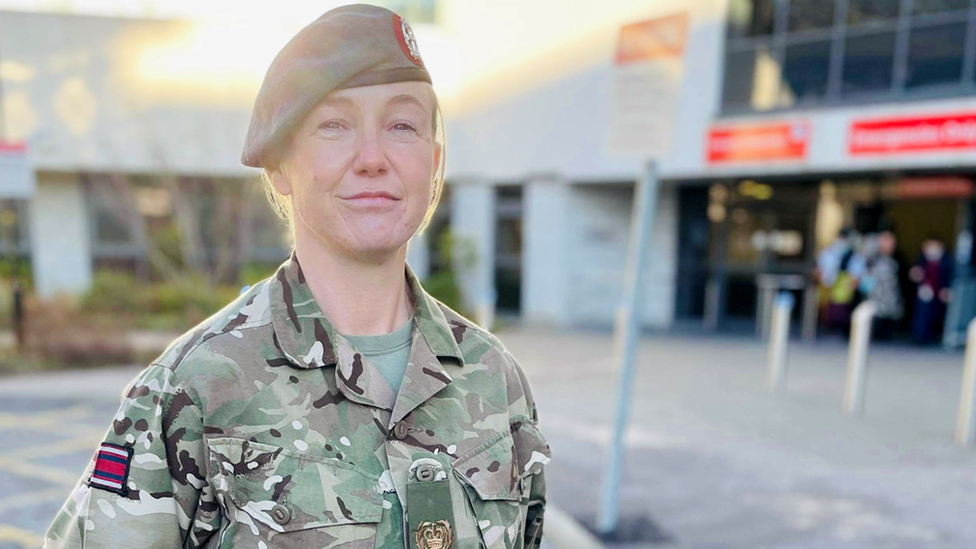
Rowan Orton said help was needed
Warrant Officer Class Two Rowan Orton, from the Queen Alexandra's Royal Army Nursing Corps, said: "Covid is hitting with regards to the staff. Covid numbers are likely to go up and there's going to be more admissions.
"They need the staff. Staff are at breaking point with regards to how hard they have been working and with illnesses. We're here to help."
'Challenging time'
June Brown, NHS Grampian executive nurse director, said: "It's a really challenging time for health boards at the moment. We're seeing lots of patients coming to our door and we're seeing lots of staff who are absent from work and unable to join us due to Covid and other reasons, so it's putting real pressure on our staff and services at the moment.
"They are here to support our staff and give them a bit of a break as well."
Health Secretary Humza Yousaf said: "The emergence of the Omicron variant of Covid-19 is adding to the winter pressures usually faced by the NHS which is why boards, like their counterparts across the UK, have requested military support to complement our existing resources.
"I'm grateful to military personnel for their efforts at this time, along with all frontline staff in our NHS for the vital role they play in help keeping us safe."
The military were previously drafted in to hospitals in Lanarkshire and the Borders last October to relieve pressure ahead of the winter.


- Published7 January 2022
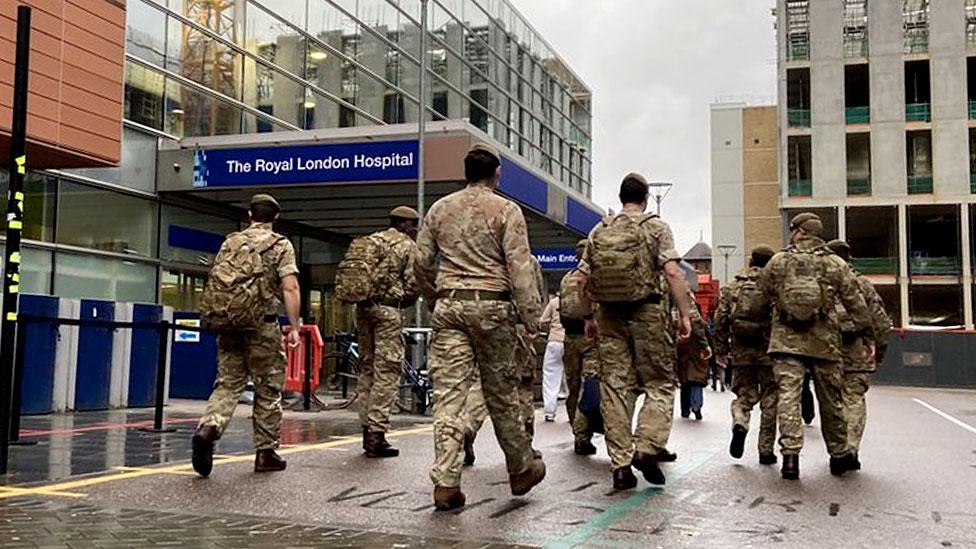
- Published24 December 2021
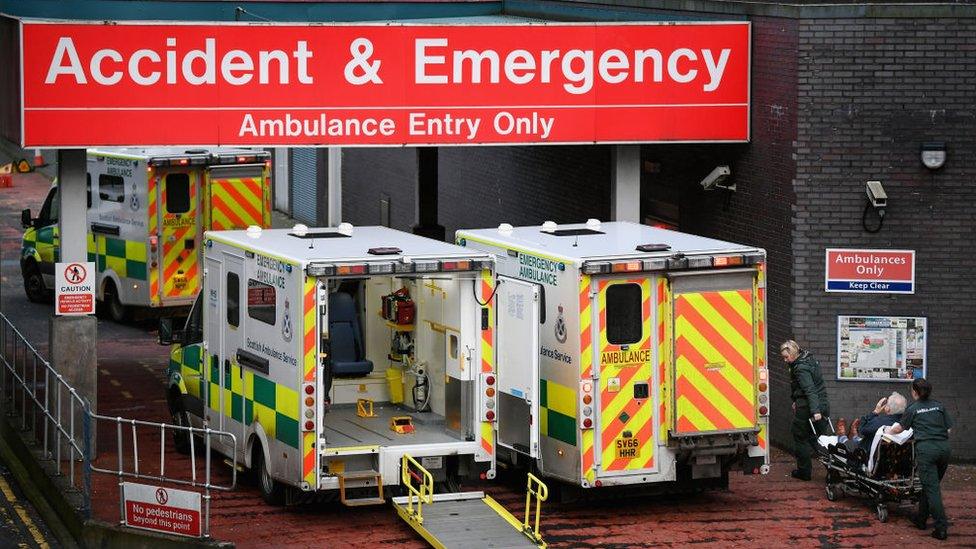
- Published2 November 2021
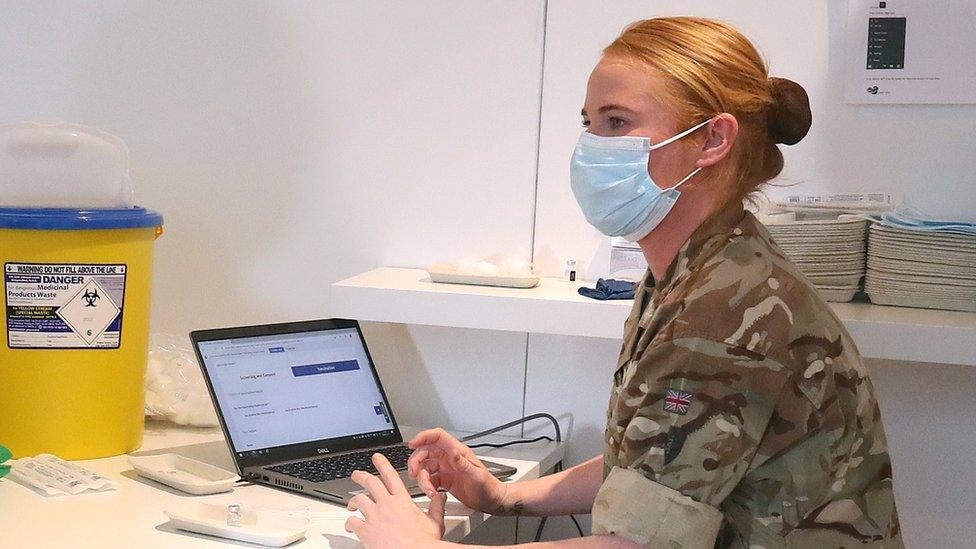
- Published15 October 2021
